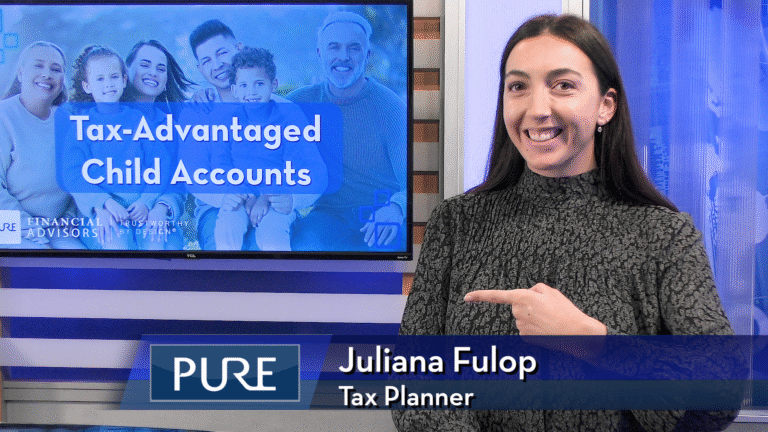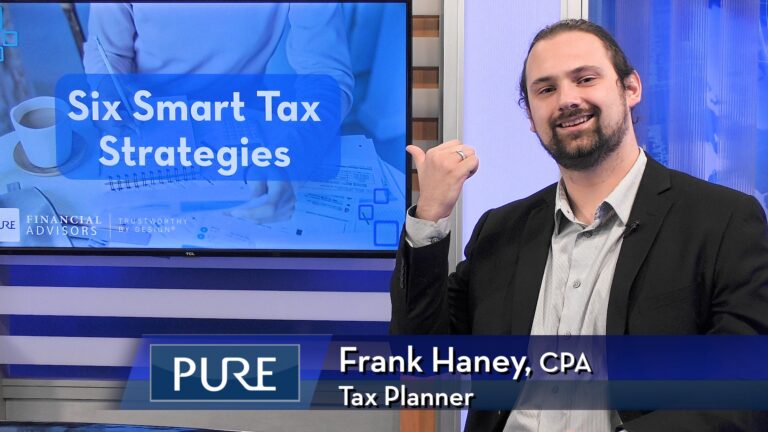While it may seem like a fact of life, going into gift-purchase debt is not inevitable. Senior Financial Planner, Peter Keller CFP®, AIF® will help you simplify and focus on the things that matter most to you this holiday season.
FREE GUIDE | Charitable Giving: Steps on Informed Donating
Transcript
The holiday season is just in front of us, a time for festivities and celebration, with friends and family. But as we prepare and decorate for the holidays many of us will have something else on our mind: money. The outlook is bright for holiday spending this year too, it is estimated that many households will spend the same or more this holiday season than they did last year. While it may seem like a fact of life, going into gift-purchase debt is not inevitable. Here are four key tips to stress-free holiday spending.
One, make a budget. A good rule of thumb is to spend no more than 1.5 percent of your annual income, on holiday expenses. To prevent yourself from scrambling to save right before the holidays, it’s a good idea to establish a holiday fund ahead of time. For instance, if you start at the beginning of the year and tuck away 10 percent of your budget each month, you’ll roll into the holidays with the money you need and a spending limit to keep you in check.
Two, be smart with credit cards. Credit cards can be your friend when used wisely: many of them have special offers, like reward points and travel miles, leveraging your everyday purchases. So how do you enjoy the benefits of credit cards without the dangers? 1) Make sure you don’t overspend and 2) pay the balance due – in full and on time – every single month. Also, don’t forget to cash in your credit card rewards as this can help pay for your holiday spending!
Three, know your limits. If your finances don’t allow you to buy for everyone on your list a gift, be honest with yourself about it. There are plenty of other ways to show people that you care by spending time with them, sharing a meal, making your own gifts, or choosing a small, personalized present instead of an expensive one. Another popular idea is Secret Santa – family or friends to draw one name to give a gift to, with the recipient having to guess who their gift-giver was. Set a spending budget that everyone can afford and have fun with.
Four, secure your information. Be cautious shopping online. Fortunately, there are some basic steps you can take to protect your information, such as monitoring your accounts, securing your devices, and placing security freezes on your credit reports. Consider purchasing ID Theft Protection. And, of course, if you are the victim of identity theft, it is important to respond quickly.
In today’s world, holiday stress might feel as American as apple pie – but it doesn’t have to! With a budget, a holiday spending fund, smart use of credit, honest limits, and protected information, you can make your holiday season more like a Hallmark Holiday Special and less like The Grinch Who Stole Christmas.
I hope these tips help you simplify and focus on things that matter most to you this holiday season so that you can give your friends and family the most precious gift of all: your presence! Happy Holidays!
Subscribe to our YouTube channel.
IMPORTANT DISCLOSURES:
• Investment Advisory and Financial Planning Services are offered through Pure Financial Advisors, LLC, a Registered Investment Advisor.
• Pure Financial Advisors LLC does not offer tax or legal advice. Consult with your tax advisor or attorney regarding specific situations.
• Opinions expressed are subject to change without notice and are not intended as investment advice or to predict future performance.
• Investing involves risk including the potential loss of principal. No investment strategy can guarantee a profit or protect against loss in periods of declining values.
• All information is believed to be from reliable sources; however, we make no representation as to its completeness or accuracy.
• Intended for educational purposes only and are not intended as individualized advice or a guarantee that you will achieve a desired result. Before implementing any strategies discussed you should consult your tax and financial advisors.
CFP® – The CERTIFIED FINANCIAL PLANNER™ certification is by the Certified Financial Planner Board of Standards, Inc. To attain the right to use the CFP® designation, an individual must satisfactorily fulfill education, experience and ethics requirements as well as pass a comprehensive exam. Thirty hours of continuing education is required every two years to maintain the designation.
AIF® – Accredited Investment Fiduciary designation is administered by the Center for Fiduciary Studies fi360. To receive the AIF Designation, an individual must meet prerequisite criteria, complete a training program, and pass a comprehensive examination. Six hours of continuing education is required annually to maintain the designation.












